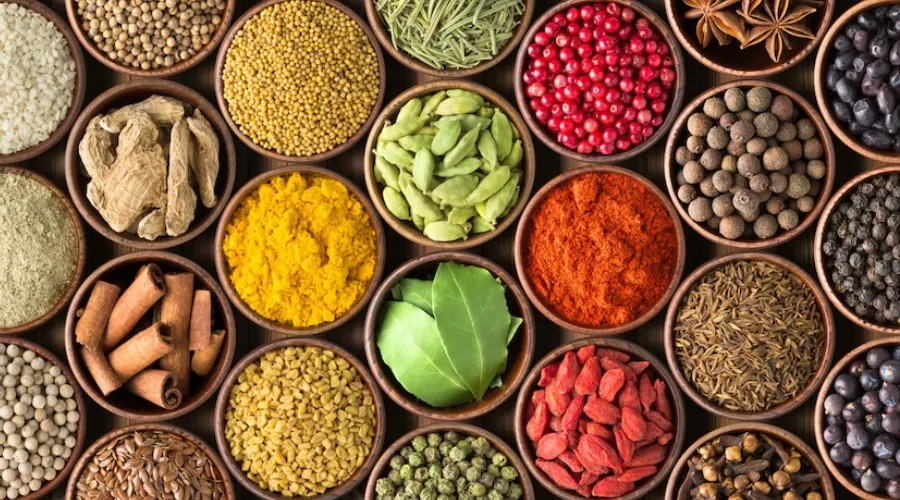
How to Choose the Right Industrial Valve Exporter for Your Business
April 29, 2025India is known as the spice capital of the world, producing over 75 of the 109 varieties listed by the International Organization for Standardization (ISO). Indian spices have become an essential ingredient in global cuisine, from vibrant curries to exotic seasonings. If you’re in the food business or planning to start your own spice brand, partnering with a reliable Indian spices exporter is a critical step toward success.
But with hundreds of exporters in the market, how do you choose the right one? This blog walks you through the key factors you should consider when selecting the perfect Indian spice export partner.
Check the Exporter’s Certifications and Compliance Standards
A reliable exporter will comply with both Indian and international quality standards. Look for certifications like:
- FSSAI (Food Safety and Standards Authority of India)
- ISO 22000 / HACCP (Hazard Analysis and Critical Control Points)
- Spices Board of India Registration
- Organic Certifications (USDA Organic, India Organic, EU Organic)
These certifications ensure that the exporter follows hygienic, safe, and environmentally responsible practices in processing and packaging.
Evaluate Their Product Range and Sourcing Capabilities
The best exporters work closely with farmers and source directly from regions known for producing high-quality spices. For example:
- Sesame Seeds
- Animal Feed
- Flour
- Food Ingredients
- Fruit and Vegetable Powder
Also, check whether they offer whole spices, ground powders, or customized blends, depending on your requirements. A diverse product catalogue shows versatility and the ability to scale with your business needs.
Examine Their Packaging and Private Label Capabilities
Packaging plays a vital role in product freshness and brand appeal. Choose an exporter who offers:
- Vacuum-sealed or nitrogen-flushed packaging
- Eco-friendly or recyclable options
- Custom labelling and branding services
If you’re launching your own spice brand, private labelling is a major plus. Make sure the exporter can provide custom branding, logo design, and packaging formats suitable for your target market (retail jars, pouches, bulk bags, etc.).
Understand Their Quality Control and Traceability System
Quality control is a non-negotiable aspect of the spice export business. Ask these questions:
- Do they have in-house lab testing for purity, moisture content, and contaminants?
- Are their spices free from adulteration, artificial coloring, or preservatives?
- Can they provide batch-wise traceability?
A trustworthy exporter will have a robust quality assurance system and will be transparent about their sourcing and testing processes.
Look at Experience and Global Reach
Experience matters. An exporter with a strong track record will understand:
- The documentation requirements for your country (e.g., phytosanitary certificates, COO, FDA approvals)
- The shipping regulations and import tariffs
- The market-specific preferences (heat levels, granule sizes, flavour profiles)
Check whether they have successfully shipped to your region, such as the USA, UAE, Europe, Australia, or Africa. Global reach is a good sign of consistency, reliability, and credibility.
Review Client Testimonials and Online Presence
A professional exporter will have a user-friendly website, active social media, and testimonials or case studies from international clients. You can also check:
- Google Reviews or Trustpilot ratings
- Industry listings like Export Genius, Alibaba, IndiaMART, or TradeIndia
- Their presence at international trade shows (e.g., Gulfood, SIAL, ANUGA)
- This gives you a real sense of their market reputation and customer satisfaction.
- Assess Communication and Customer Support
- Effective communication is vital in international trade. You’ll need a partner who:
- Responds promptly to emails or calls
- Understands logistics, export documentation, and customs clearance
- Offers pre-shipment samples
- Provides order tracking and post-shipment support
Clear, honest communication reflects professionalism and reliability, especially when dealing with large or repeated orders.
Request Samples and Compare Prices
Before placing a bulk order, request spice samples to evaluate aroma, color, purity, and taste. A good exporter will gladly provide samples.
Also, while comparing prices, don’t just go for the cheapest option. Consider:
- Value for money (Are they offering consistent quality?)
- Packaging costs
- Shipping charges
- Minimum order quantities
A slightly higher price may bring better quality, faster delivery, and stronger customer support—all of which matter more in the long run.
Choosing the right Indian spices exporter is about more than just finding a supplier — it’s about building a strategic partnership that supports your business growth. From certification and quality to packaging and service, every detail counts.
Take the time to vet your options, request samples, and verify their credentials. A reputable exporter will not only meet your needs but also help you deliver authentic, flavourful, and high-quality Indian spices to your global customers.



